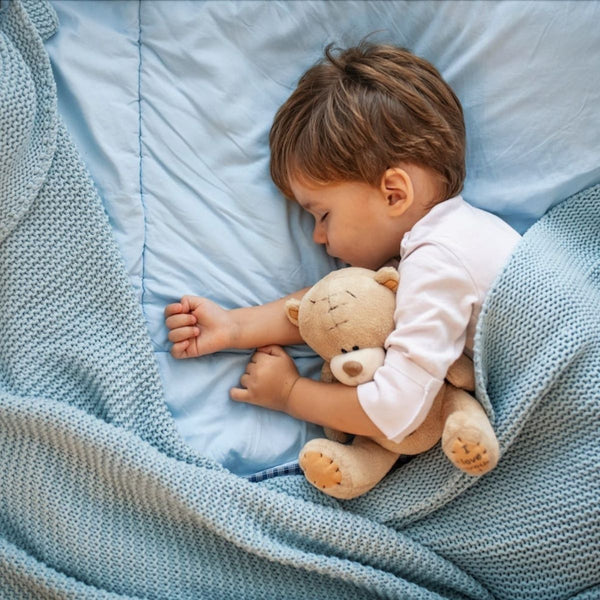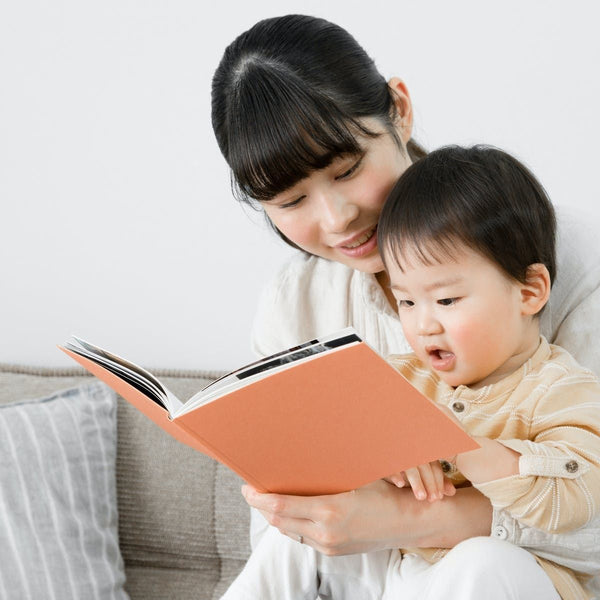How Can I Keep My Baby Cool in Hot Weather?

Babies depend on us parents in keeping themselves comfortable especially during these unusual hot summer days. Their ability to regulate temperature is not yet fully developed. Also, they can’t tell us if they’re feeling too hot already.
Temperatures outside may reach 26℃ and higher. Add to that the rising humidity levels (up to 65%) and the heat becomes intolerable even for us adults. Infants may get cranky and stressed. In addition, overheating can be really dangerous to babies.
Why keeping your baby cool is crucial?
Babies are very sensitive to drastic changes in body temperature (and extreme ambient temperatures). Babies (and very young children) dehydrate and overheat much quicker and easier than adults. For example, even a temporary 2℃ rise in room temperature may immediately stress your baby. The baby’s sleep gets interrupted. Their bodies may also overcompensate by excessive sweating and rapid, shallow breathing.
It’s critical to prevent that scenario. This way, your baby will remain comfortable and you safeguard his/her health. This also means more time and energy for him/her to bond with you throughout the day.
How to keep your baby safe these hot summer days?
The key here is to avoid extreme and drastic changes in temperature. A good level of stability and consistency will keep your baby feeling comfortable and healthy even when the sun is shining at its brightest.
Here are specific things you can do to keep your baby cool:
- Set air conditioner to 24℃ (but avoid keeping it overnight)
- Maintain good air circulation and ventilation
- Make your baby gently cool down with tepid bath or wipes
- Ensure comfortable clothing and setting when it’s your baby’s bedtime
Set air conditioner to 24℃ (but avoid keeping it overnight)
It’s a good temperature to maintain especially during 10am to 2pm (when sun can really heat up the surroundings). This prevents the ambient temperature in your baby’s room from reaching 26℃ and up.
Aside from controlling temperature, air conditioners also help regulate humidity levels inside a room. This could have an added cooling effect, which is why 24℃ is already good enough. The cooling level is just comfortable for babies. This would prevent massive heat loss which is as dangerous as overheating.
It’s good though to set the timer so the temperature levels fluctuate a bit. The baby might become overly sensitive to slight increases in temperature. If the air conditioner continuously runs at 24℃, the air might become a bit cooler and drier at the room. This could result to loss of heat from the baby’s body and possible respiratory problems.
To keep your baby cool and safe, set the air conditioner at 24℃ and time it for a few hours. It’s also ideal to closely monitor your baby’s condition for the first few days and see his/her body’s reaction. This way, you keep your baby cool while ensuring his/her comfort throughout the day.
Maintain good air circulation and ventilation
Good air circulation and ventilation is good for the baby’s respiratory system (and also for preventing mould growth in the baby’s room). That’s why during the cool hours (e.g. early morning, late afternoon), it’s good to turn off the air conditioner and allow your baby have a good breath of fresh air.
A room with poor ventilation could be as detrimental as overheating. Poor ventilation and air circulation could also lead to excessive sweating. In addition, the resulting stale air is an ideal environment for moulds and microbes to thrive. It could compromise your baby’s respiratory system (e.g. throat irritation, coughing, nasal congestion).
How to ensure your baby’s room is well ventilated? The room must have at least two openings to allow air to freely circulate. Aside from improving ventilation, it’s a natural way of keeping your baby cool. The air circulating would enable the baby’s sweat to evaporate slowly. As a result, the heat build-up slowly and gently fades. This avoids the “shock” to the baby’s system.
Installation and usage of fans (wall- or ceiling-mounted and stand fans) can also improve air circulation. It could induce the entry and exit of air in a room. In addition, the circulating air could also help in gently making the sweat evaporate.
The fans should not be pointed directly to your baby though. The air directly from the fans might cause rapid heat loss and skin dryness to your baby. The goal is to make the air circulate, which could be already enough to keep your baby cool and comfortable.
Make your baby gently cool down with tepid bath or wipes
This is another way of gently getting rid of the built up heat from your baby’s body. A tepid or lukewarm bath will make your baby’s body cool down while preventing sudden heat loss and shock.
Do that especially during the unusual hot hours of the day. If you’re feeling hot and sweaty, your baby must be feeling the same (or hotter and more uncomfortable). A short lukewarm bath (or a few wipes every hour or two) could do a lot in keeping your baby cool despite the hot summer. The experience also gets a lot better if there’s a bathing cushion that will make your baby feel safe and relaxed.
Ensure comfortable clothing and setting when it’s your baby’s bedtime
At night the baby will spend at least 8 hours sleeping. A comfortable and uninterrupted sleep is crucial to his or her optimal development. Any interruption (due to discomfort and other reasons) could halt the babies’ development and even harm their health.
That’s why parents make sure that their babies are wearing light and loose clothing. These clothes will keep the air circulating around their bodies. There will be easier temperature regulation which results to improved comfort and prevention of overheating.
This also applies when it’s just nap time for your baby. The clothing should be comfortable throughout the day. One rule of thumb is to dress your baby as you would dress yourself. The comfort you would feel could be similar to what your baby feels.
To further improve your baby’s comfort during bedtime, safety womb crib hammocks are now available with breathable mesh. This allows free air circulation around the baby’s body while he/she is sleeping. In addition, it resembles the mother’s womb which can help the baby relax and feel safe.
Other tips to keep your baby cool and safe
The key is to make regulation of body temperature as smooth and easy for your baby. This includes making your baby wear light and loose clothes, applying tepid wipes or bath, maintaining good air circulation and keeping the room temperature cool enough.
Aside from those, here are other tips to protect your baby from the hot weather:
- Protect your baby from the sun (hat and sunscreen).
- Go to a cooler place (e.g. your parents’ or friends’ house) if your home is unusually hot.
- Stay indoors from 11am to 5pm (hottest hours of the day). Go outside when it’s cooler.
- When travelling, choose short-distance travel or schedule it for the cooler hours of the day.
- For mums, breastfeed more frequently (babies get dehydrated more easily).
- Never leave your baby inside a car (when you’re not around and car is parked). The car’s inside can heat up very quickly.
Your important role as the parent
There’s no substitute for hands-on and round-the-clock care for your baby. It’s especially the case during your baby’s first six months. The risks are highest during that period. Also, it’s the time when your baby undergoes rapid physical and brain development.
During the long hot days of summer, keep your baby safe and cool by following the advice above. In addition, constantly check on your baby to ensure his/her wellness.







